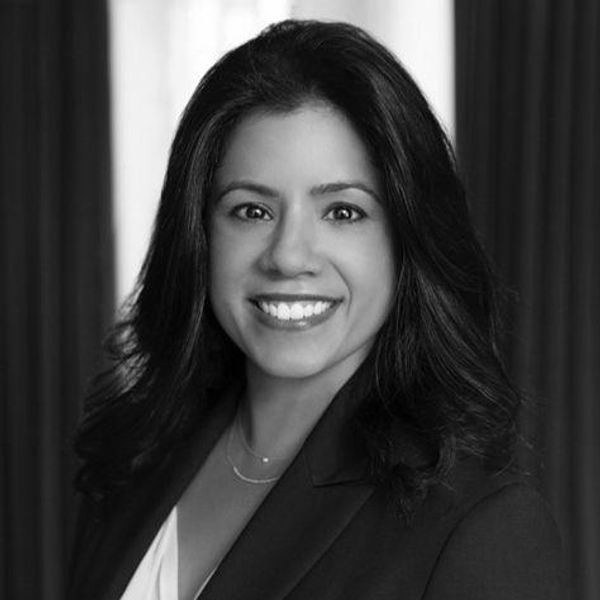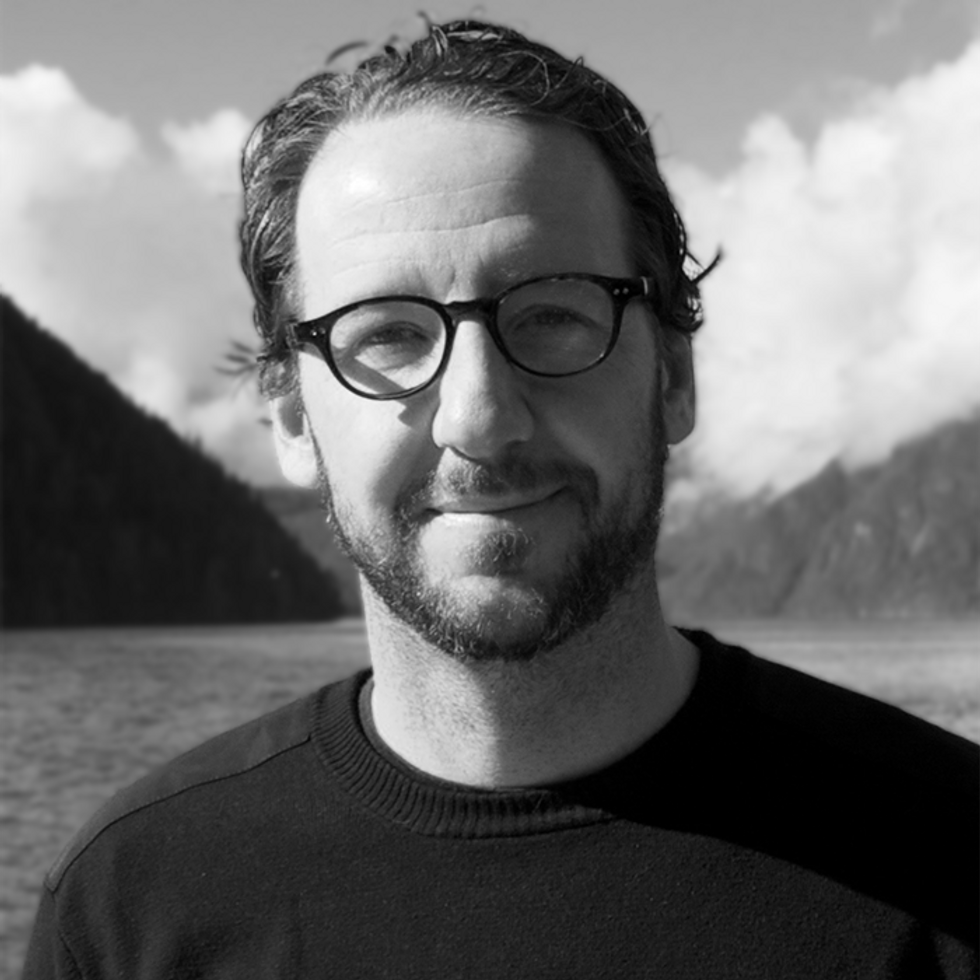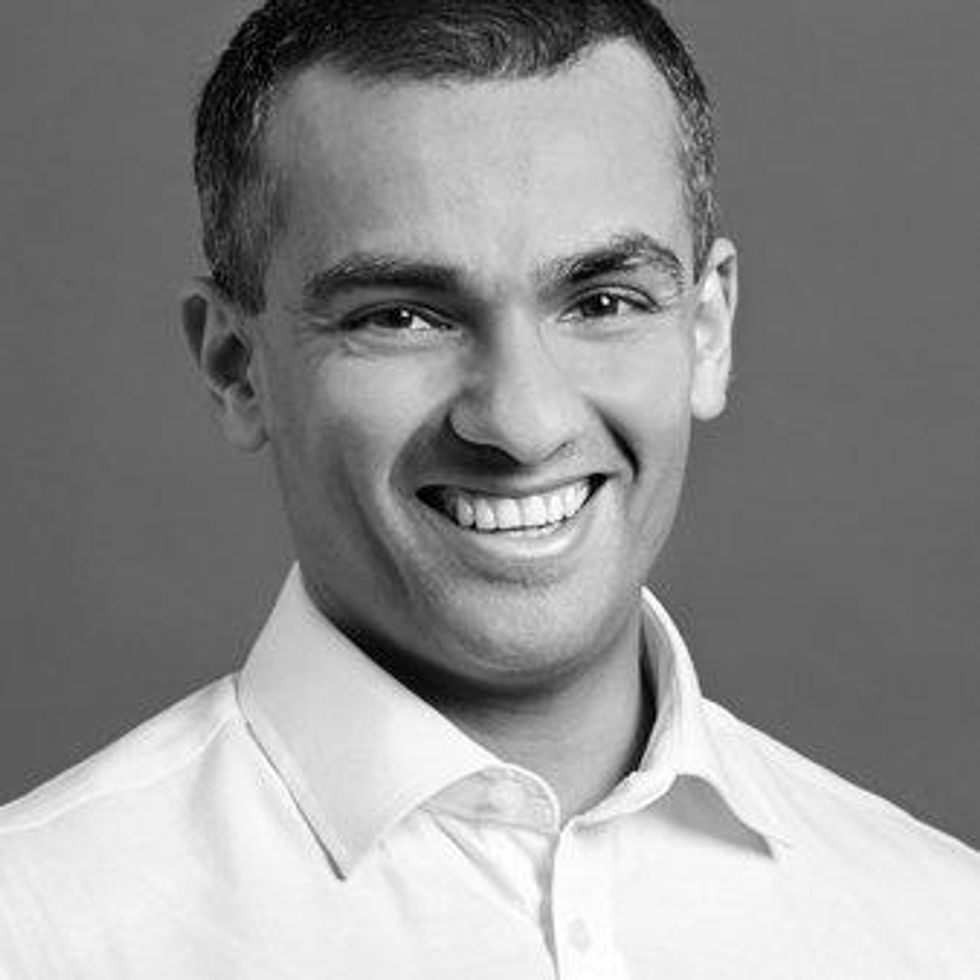Trending Now
We have updated our Privacy Policy and Terms of Use for Eurasia Group and its affiliates, including GZERO Media, to clarify the types of data we collect, how we collect it, how we use data and with whom we share data. By using our website you consent to our Terms and Conditions and Privacy Policy, including the transfer of your personal data to the United States from your country of residence, and our use of cookies described in our Cookie Policy.
{{ subpage.title }}
3 ways mining companies can help protect biodiversity
You'd think the best thing an extractive industry like mining can do for biodiversity would be to go out of business. Think again, says International Council on Mining and Metals CEO Rohitesh “Ro” Dhawan.
He shares three ways mining can have a positive impact on reversing the course of nature's destruction during "Time for nature: Turning biodiversity risk into opportunity," a livestream conversation hosted by GZERO in partnership with Suntory.
First, conservation. Second, restoration. And third, disclosure of lots of data.
Once mining firms "understand what species there are in the area, they change their mining plan to make sure it doesn't disturb those species," Dhawan says.
Learn more about this GZERO Media live discussion: https://www.gzeromedia.com/sustainability
- Biodiversity loss: Is nature-positive the new net zero? ›
- COP15 biodiversity wish list for the private sector ›
- Reversing biodiversity loss by 2030: "We don't have a choice," says Magali Anderson ›
- "We don't have any right to destroy nature" — Suntory CEO Tak Niinami ›
- How do financial disclosures help protect biodiversity? - GZERO Media ›
- US-Canada can and will extract critical minerals sustainably, says top US diplomat - GZERO Media ›
Biodiversity loss: Is nature-positive the new net zero?
The world has been in a climate emergency for years now. But much less attention is paid to biodiversity loss — which is a very big deal since we're on the brink of a sixth mass extinction.
On the heels of the ongoing COP15 UN Biodiversity Conference in Montreal, Canada, we gathered experts from the public and private sectors to discuss the gravity of the problem and, more importantly, how to fix it. The solution lies with businesses, although it needs help from policymakers to figure out how to make money in a sustainable way that not only protects life on earth but actually reverses the course of its destruction.
Here are a few highlights from "Time for nature: Turning biodiversity risk into opportunity," a livestream conversation hosted by GZERO in partnership with Suntory.
Ko Barrett, vice chair of the Intergovernmental Panel on Climate Change and senior adviser for climate at NOAA, offers a primer on the importance of biodiversity to human life and explains why we can't solve climate change without addressing biodiversity loss simultaneously.
Eurasia Group President Ian Bremmer delves into the geopolitics of biodiversity as an economic issue and identifies the three types of risk companies face from biodiversity loss.
Suntory CEO Tak Niinami gives his take on why companies should do more to coexist with nature long-term and share their know-how to reverse biodiversity destruction.
Kathleen McLaughlin, Walmart's executive VP and chief sustainability officer, shares how retailers can work not only to conserve but also protect nature with successful examples from Walmart's Project Gigaton.
Ingrid Kukuljan, head of Impact & Sustainable Investing at Federated Hermes, laments how investors have ignored nature despite the many opportunities in public markets and dismisses metrics as the big obstacle to mobilizing more money for biodiversity.
FNZ Group sustainability chief Vian Sharif addresses greenwashing related to biodiversity and admits that the financial sector is only at the beginning of its nature-positive journey.
NatureMetrics CEO Katie Critchlow explains how her company "measures nature," which many people are not aware can actually be done.
International Council on Mining and Metals CEO Rohitesh “Ro” Dhawan shares how even extractive companies can have a positive impact on biodiversity via conservation, restoration, and data, and want governments to be more ambitious on this issue.
Magali Anderson, Holcim's chief sustainability and innovation officer, says that the world's biggest cement company wants two things from COP15: a framework for corporations and a commitment to reverse biodiversity loss by 2030.
Taskforce on Nature-related Financial Disclosures technical director Emily McKenzie comments on why markets are ready to take action on biodiversity and gives an update on what's cooking with the TNFD.
Anthony Watanabe, chief sustainability officer at Indorama, gives a rundown of what his company is doing on nature-positive.- Fixing climate in Asia… and recycling its plastics too ›
- COP15 biodiversity wish list for the private sector ›
- COP27 winners and losers ›
- What to expect from COP27: “It’s pretty grim” ›
- How do financial disclosures help protect biodiversity? - GZERO Media ›
- 3 ways mining companies can help protect biodiversity - GZERO Media ›
Watch live: Turning biodiversity risk into opportunity
TODAY AT 8 AM ET: Among the many challenges stemming from climate change: natural ecosystems and habitats are being destroyed.
Recognition of the link between business sustainability and a healthy, living planet has motivated businesses to incorporate nature into decision-making. But the private sector needs help – from policymakers, scientists, and communities – to measure impact and devise sustainable solutions.
In our live digital event on December 14, Tak Niinami, CEO, Suntory Holdings, will be joined by Eurasia Group & GZERO Media president Ian Bremmer, experts from Eurasia Group’s climate team, private and public leaders, scientists, and other experts on the world’s nature and biodiversity to address this challenge and chart a path towards reversing nature loss.
Time for nature: Turning biodiversity risk into opportunity
Wednesday, Dec 14 2022 | 8 am EST / 10 pm JST
Register to attend and receive the playback after the livestream concludes.
Speakers
- Magali Anderson, Chief Sustainability and Innovation Officer, Holcim Technology
- Ko Barrett, Senior Advisor for Climate, National Oceanic and Atmospheric Administration
- Ian Bremmer, President and Founder of Eurasia Group and GZERO Media
- Katie Critchlow, CEO, NatureMetrics
- Rohitesh Dhawan, CEO, International Council on Mining and Metals
- Ingrid Kukuljan, Head of Impact & Sustainable Investing, Federated Hermes
- Eva Mayerhofer, Head of Environment Policy Unit, European Investment Bank
- Kathleen McLaughlin, EVP and Chief Sustainability Officer, Walmart Inc & President, Walmart Foundation
- Emily McKenzie, Technical Director, Taskforce on Nature-related Financial Disclosures
- Tak Niinami, CEO, Suntory Holdings
- Vian Sharif, Head of Sustainability, FNZ Group
- Shari Friedman, Managing Director, Climate & Sustainability, Eurasia Group (moderator)
- Franck Gbaguidi, Senior Analyst, Energy, Climate & Resources, Eurasia Group (moderator)
The livestream is part of the Sustainability Leaders Council, in partnership with Suntory Holdings, Fubon Financial, Gund Investment LLC, Indorama Ventures, Japan Bank for International Cooperation (JBIC), Sumitomo Corporation, Taiwan Mobile, Unison Capital, the Asia Business Council, and the International Council on Mining and Metals.
Episode 9: Can sustainable investing save our planet?
Listen: Benjamin Franklin famously called on American business leaders more than two centuries ago to "Do well by doing good." To him, that meant creating companies that were not just about the bottom line, but also that helped foster happier and healthier communities. Now, as 2021 approaches and the world recovers from the greatest crisis of our lifetimes, sustainable investing is a bigger discussion than ever. What does it mean, and how does it not only help the environment and societies but also build your bottom line? That's the topic of the latest episode of Living Beyond Borders.
Moderator Caitlin Dean is joined by Harlin Singh, Head of Sustainable Investing at Citi Private Bank; Elree Winnett Seelig, the Head of ESG for Markets and Security Services at Citi; Rohitesh Dhawan, Director of Global Energy and Natural Resources at Eurasia Group; and Gerry Butts, Eurasia Group's Vice Chairman.

Elree Winnett Seelig
Head, ESG, Markets & Securities Services, Citi

Harlin Singh
Head of Sustainable Investing, Citi Private Bank

Gerald Butts
Vice Chairman, Eurasia Group

Rohitesh Dhawan
Managing Director, Energy, Climate & Resources, Eurasia Group

Caitlin Dean
Practice Head, Financial & Professional Services, Eurasia Group
Panel: Why access to broadband & digital skills is critical
On October 7th, GZERO Media — in partnership with Microsoft and Eurasia Group — presented a live panel discussion, "Digital Inclusion: Connectivity and Skills for the Next Billion Jobs," about the acceleration of digitalization, the changing workforce, and the need for digital access for all.
The conversation was moderated by Sherrell Dorsey, founder and CEO of The Plug, and our panel included:
- Kate Behncken, Vice President, Microsoft Philanthropies
- Lisa Lewin, CEO of General Assembly
- Parag Mehta, Executive Director and Sr Vice President, Mastercard Center for Inclusive Growth
- Dominique Hyde, Director External Relations, United Nations High Commissioner for Refugees
- Rohitesh Dhawan, Managing Director, Energy, Climate & Resources, Eurasia Group
Also featured: special appearances by Michelle Bachelet, United Nations High Commissioner for Human Rights and former president of Chile, and Doreen Bogdan-Martinof the International Telecommunications Union.
A key theme that emerged during discussion was whether internet connectivity should be a human right. For Dhawan, digital inclusion is critical to achieving the UN Sustainable Development Goals, as we have seen during the pandemic how connectivity plays out in real life for all of us. It's also affecting anxiety about long-term student outcomes, said Behncken, who underscored the importance of giving schools proper IT infrastructure so they can train teachers, too.
As for how COVID-19 will affect job skilling, Hyde mentioned how refugees will likely suffer the most because they have the least access to tech. To fix that, Behncken proposed investing in quality education so migrants can become self-sufficient through nurturing their own talent.
Governments have a role to play in all of this. During the Great Depression in the US, Mehta pointed out, the government stepped up to provide jobs. Now, he said, there's an enormous opportunity to accomplish the same goal but indirectly — by empowering small businesses to become job creators through digitalization.
For Lewin, successful reskilling begins with a mindset that recognizes the critical importance of workers and why they are central to the long-term success, competitiveness, and talent value of any organization, public or private.
At this critical moment for connectivity, Bogdan-Martin proposed that the public and private sectors work together to craft a common policy for new digital jobs. But what does that look like? For Dhawan, it's time to invest in public-private connectivity infrastructure investments that will help create far more jobs than spending on roads or bridges.
Finally, however good a policy may be, it won't work until we remove barriers to access on learning and skilling. Lewin said that since no one school or university can do it alone, governments and private firms need to join the challenge so this crisis doesn't have an even more disproportionate impact of the crisis on marginalized communities worldwide.
Watch the other discussions in our four-part livestream panel series about key issues facing the 75th United General Assembly.
Oct 7 panel on digital inclusion in the workforce
Teaching digital skills could empower the workforce the 21st century needs, especially in the wake of the COVID-19 crisis.
On Wednesday, October 7th at 11a ET/8a PT/4p BST, GZERO Media — in partnership with Microsoft and Eurasia Group — presented a live panel discussion, "Digital Inclusion: Connectivity and Skills for the Next Billion Jobs," about the acceleration of digitalization, the changing workforce, and the need for digital access for all.
The conversation was moderated by Sherrell Dorsey, founder and CEO of The Plug, and our panel included:
- Kate Behncken, Vice President, Microsoft Philanthropies
- Lisa Lewin, CEO of General Assembly
- Parag Mehta, Executive Director and Sr Vice President, Mastercard Center for Inclusive Growth
- Dominique Hyde, Director External Relations, United Nations High Commissioner for Refugees
- Rohitesh Dhawan, Managing Director, Energy, Climate & Resources, Eurasia Group
Sign up to be notified about future GZERO Media events.
Go to
https://www.gzeromedia.com/unga/livestream/ to watch our livestream events. (No registration required.)
For more information, read our explainer on Digital inclusion: Activating skills for the next billion jobs, part of our coverage of the most pressing issues facing the 2020 United Nations General Assembly, and watch this video.
Internet Connectivity & the Need for Digital Inclusion: Access, Training, Skills, Jobs | GZERO Mediayoutu.be
Digital Inclusion: Activating Skills for the Next Billion Jobs: Wednesday, October 7th, 11a ET/8a PT/4p BST


